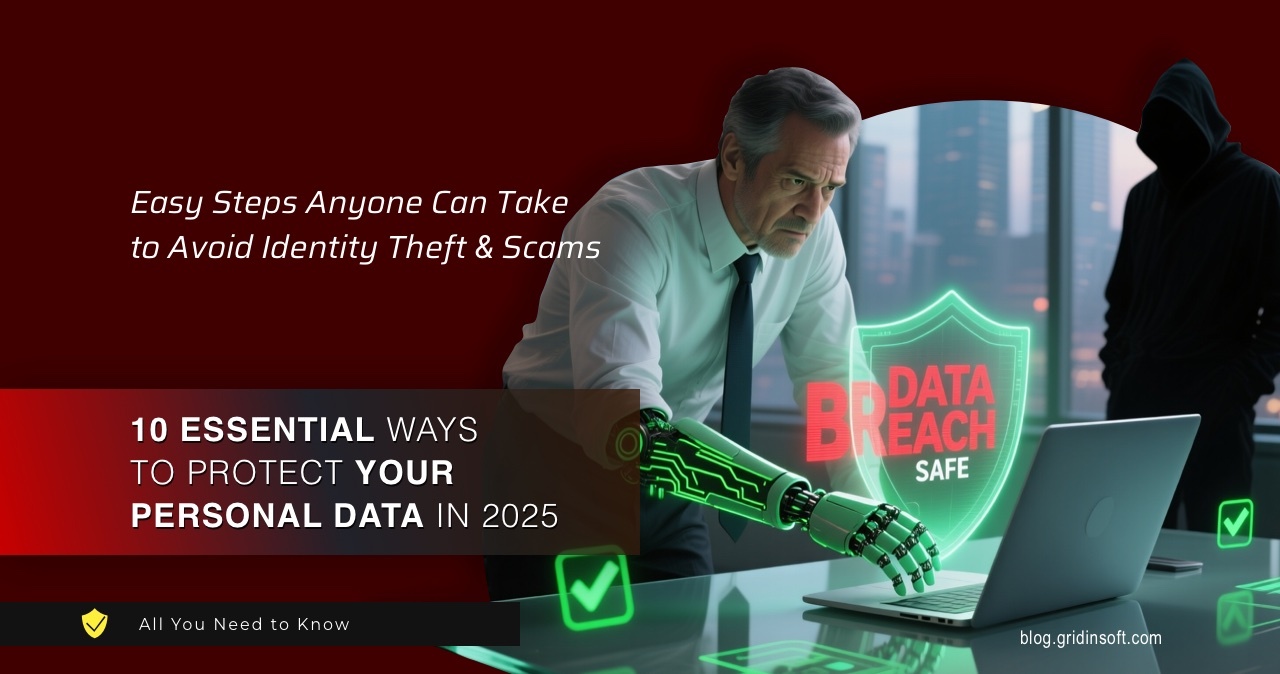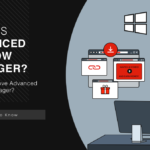Okay, here’s something that’ll make you think twice about your “password123” habit: cybercrime is about to cost the world $10.5 trillion annually by 2025. Yeah, trillion with a T. Cybersecurity Ventures dropped that bombshell, and honestly? It’s keeping security folks up at night.
- What Is Data Protection? (Spoiler: It’s Not Just Strong Passwords)
- The Bad Guys Have Gotten Really, Really Good at This
- 10 Ways to Actually Protect Your Data (That Really Work)
- The Scary Stuff That’s Coming Next (Brace Yourself)
- Social Media Privacy Protection
- Building a Security-First Mindset
- So, Are We Doomed? (Spoiler: No, But You Need to Act)
But wait, there’s more bad news (sorry). IBM’s latest report shows the average data breach now costs companies $4.88 million. And here’s the kicker – most of these breaches start with stolen passwords. You know, those same passwords you’ve been “meaning to update” since forever.
Look, I get it. Another security article telling you to be careful online. But stick with me – I’ve watched too many smart people lose everything to ridiculously preventable attacks. We’re talking about real protection here, not just the usual “be careful” advice. Plus, we’ll cover those nasty malware variants that are getting smarter every day.
What Is Data Protection? (Spoiler: It’s Not Just Strong Passwords)
Let’s clear something up right away – data protection isn’t just about having a password that would make a cryptographer proud. It’s actually a whole bunch of technical, procedural, and behavioral stuff working together. Think of it like home security – you don’t just lock the front door and ignore the windows, right?
So what are we really talking about here?
- Encryption – The technical stuff (AES-256, RSA-2048 if you’re curious) that scrambles your data into unreadable gibberish. Like a secret decoder ring, but way cooler.
- Access controls – Fingerprints, face scans, those annoying text codes. Yeah, they’re a pain, but they work. Think of it as a bouncer for your data.
- Smart habits – This is the human stuff. Not clicking weird links. Actually reading those security warnings. You know, common sense (which isn’t that common).
- Legal protections – GDPR, CCPA, and other boring acronyms that basically mean companies can’t just sell your data to the highest bidder anymore. Progress!
Here’s a fun fact that’s not actually fun: Verizon’s 2024 report found that 74% of breaches involve good old human error. Not sophisticated hacking. Not elite cybercriminals. Just regular people clicking the wrong thing or using terrible passwords. Ouch.
That’s exactly why you can’t just install antivirus and call it a day. You need to actually understand how ransomware works (it’s scarier than you think) and get serious about remote work security – especially if you’re one of those “coffee shop office” people.
The Bad Guys Have Gotten Really, Really Good at This
Before we dive into protection (the fun part), we need to talk about what you’re up against. And honestly? It’s gotten pretty wild out there:
Advanced Persistent Threats (APTs) – The Ninjas of Hacking
Picture this: hackers who break into networks and just… hang out. For months. Sometimes years. That’s APTs for you – they’re like digital squatters, except way more dangerous. CISA keeps warning us that these groups are getting bolder, and here’s how they do it:
- They use legitimate tools already on your computer (sneaky, right?)
- They exploit vulnerabilities nobody even knows exist yet (called zero-days)
- They hack one company to get to thousands of others (remember SolarWinds? Yeah, that was fun…)
Social Engineering Got a Major Upgrade (Thanks, AI)
Remember when phishing emails had terrible grammar and claimed you won the Nigerian lottery? Those days are gone, my friend. Microsoft’s 2024 report shows that scammers have seriously upped their game:
- Deepfakes – Your “boss” calling you for an urgent wire transfer? Might not be your boss anymore
- AI-written phishing – These emails now sound exactly like your coworker wrote them (creepy, I know)
- Callback scams – They trick YOU into calling THEM. And people fall for it every single day
10 Ways to Actually Protect Your Data (That Really Work)
1. Multi-Factor Authentication – Your New Best Friend
I know, I know – MFA is annoying. Having to grab your phone every time you log in? Ugh. But here’s the thing: this one simple annoyance blocks 99.9% of automated attacks. That’s not a typo. It literally stops almost everything.
But not all MFA is created equal. Let me break it down:
- Hardware Security Keys (FIDO2/WebAuthn): Physical devices like YubiKey provide phishing-resistant authentication. Unlike SMS or app-based codes, they cannot be intercepted or socially engineered.
- Biometric Authentication: Combine something you know (password) with something you are (fingerprint, facial recognition) and something you have (device).
- Risk-Based Authentication: Implement adaptive MFA that adjusts requirements based on login context (location, device, behavior patterns).
Here’s How to Actually Set This Up (It’s Easier Than You Think):
- Start with your bank accounts – seriously, do this TODAY
- Add at least two backup methods (but please, not SMS – hackers can steal your phone number)
- Turn on those annoying login alerts – they’ve saved me twice already
- Check your “connected apps” monthly and kick out anything you don’t recognize
2. Get Serious About Antivirus (Yes, You Still Need It)
“But I have Windows Defender!” I hear you say. Cool. That’s like bringing a knife to a gunfight. Modern threats need modern protection, and the MITRE ATT&CK framework (basically the encyclopedia of hacking techniques) shows why:
Essential Components:
- Next-Generation Antivirus (NGAV): Uses machine learning and behavioral analysis to detect unknown threats
- Endpoint Detection and Response (EDR): Provides visibility into endpoint activities and enables threat hunting
- Application Control: Prevents unauthorized software execution, blocking hacktools and pirated software that often contains malware
- Device Encryption: Protects data if devices are lost or stolen
Comparative Analysis of Security Solutions:
When selecting endpoint protection, consider multiple options based on independent testing from AV-TEST and AV-Comparatives. Leading solutions include enterprise-grade offerings from Microsoft Defender, CrowdStrike, and SentinelOne, while consumer options range from built-in OS protection to specialized anti-malware tools. GridinSoft Anti-Malware offers lightweight protection particularly effective against emerging threats, though users should evaluate based on their specific needs and threat model.
3. That Firewall Thing – Yeah, You Need to Actually Use It
Remember firewalls? Those things we all turned off in 2010 because they blocked our games? Well, turns out they’re actually important. Who knew? Here’s the deal:
Windows Firewall Configuration:
# Enable Windows Firewall for all profiles
Set-NetFirewallProfile -Profile Domain,Public,Private -Enabled True
# Block all inbound connections except those explicitly allowed
Set-NetFirewallProfile -Profile Public -DefaultInboundAction Block
# Create rule to block specific ports commonly exploited
New-NetFirewallRule -DisplayName "Block SMB" -Direction Inbound -LocalPort 445 -Protocol TCP -Action Block
# Log dropped packets for analysis
Set-NetFirewallProfile -Profile Domain,Public,Private -LogBlocked True -LogFileName %SystemRoot%\System32\LogFiles\Firewall\pfirewall.log
Advanced Firewall Strategies:
- Application-Layer Filtering: Configure rules based on applications, not just ports
- Geo-blocking: Restrict traffic from high-risk countries if not needed for business
- Intrusion Prevention Systems (IPS): Deploy inline detection to block malicious traffic in real-time, especially from obfuscated threats
- Network Segmentation: Isolate critical systems from general network traffic
4. Public WiFi Is Basically a Hacker Convention (Use a VPN)
True story: I once watched a security researcher hack everyone in a Starbucks in about 5 minutes. Just for fun. He bought them all coffee afterward, but still… scary stuff. Check out our public Wi-Fi survival guide if you want the full horror story.
The solution? VPN. It’s like an invisibility cloak for your internet traffic. Without it, you’re vulnerable to man-in-the-middle attacks (yes, that’s as bad as it sounds) and proxyjacking (even worse).
How to Pick a VPN That Doesn’t Suck:
- Strong encryption – Look for “AES-256” (military-grade sounds cooler, but that’s what it means)
- No logs – They shouldn’t keep records of what you do. Ever. Make sure it’s audited
- Kill switch – If VPN fails, internet stops. No exceptions
- DNS leak protection – Stops your ISP from being nosy (they’re always watching)
Technical Implementation:
# Install WireGuard on Linux
sudo apt-get install wireguard
# Generate keys
wg genkey | tee privatekey | wg pubkey > publickey
# Configure interface
sudo nano /etc/wireguard/wg0.conf
5. Your Email Is Basically a Hacker Magnet
Fun fact: 91% of cyberattacks start with an email. Proofpoint’s research confirms what we all suspected – email is where the party starts for hackers. So let’s ruin their fun:
Technical Controls:
- SPF, DKIM, and DMARC: Email authentication protocols that prevent spoofing
- Email Gateway Security: Filters malicious attachments and URLs before delivery
- Sandboxing: Detonates suspicious attachments in isolated environments
- Data Loss Prevention (DLP): Prevents sensitive data from being emailed externally
User-Level Protection:
- Use unique, complex passwords for email accounts (minimum 16 characters)
- Enable login alerts and review account activity regularly
- Configure email client to display full sender addresses
- Disable automatic image loading to prevent tracking pixels
- Use encrypted email services for sensitive communications (ProtonMail, Tutanota)
6. Update Your Stuff (Yes, Right Now)
You know those update notifications you keep dismissing? Yeah, stop doing that. CISA’s data shows that most hacks exploit old vulnerabilities that already have fixes. The patches exist! You just need to actually install them. Wild concept, I know:
Automated Update Strategy:
- Operating System: Enable automatic security updates
- Browsers: Use auto-update features and restart regularly
- Plugins: Remove unused plugins, update remaining ones monthly
- Firmware: Check router, IoT device firmware quarterly
7. Backups: Your “Get Out of Jail Free” Card
Real talk – ransomware is everywhere now. It’s like a digital pandemic that never ended. But here’s the secret weapon hackers don’t want you to know about: good backups make ransomware worthless. Can’t ransom data that’s already backed up, right? Check our ransomware survival guide for the full story.
The Backup Formula That Actually Works (3-2-1-1-0):
- 3 copies total (because stuff happens)
- 2 different storage types (don’t put all eggs in one basket)
- 1 offsite backup (in case your house burns down – yeah, it happens)
- 1 offline copy (unplugged = unhackable)
- 0 errors when you test it (please actually test your backups!)
Implementation Best Practices:
- Automate backups to prevent human error
- Encrypt backups using AES-256 encryption
- Test restoration procedures monthly
- Implement immutable backups that cannot be altered or deleted
- Use versioning to protect against ransomware that encrypts over time
- Consider additional secure storage strategies for critical data
8. Your Passwords Probably Suck (Sorry, But It’s True)
Want to feel better about yourself? NordPass found that “123456” is STILL the most common password. In 2024. After literally decades of warnings. We’re doomed.
But seriously, let’s fix your password game:
The “My Password Doesn’t Suck” Checklist:
- Make it long – 16+ characters minimum. Yes, really. I use full sentences sometimes
- Mix it up – ThRoW !n S0me W3!rd StUfF l!kE th!s
- One password per account – I know it’s a pain, but trust me on this
- Keep it random – Your dog’s name + your birth year = you’re getting hacked
Password Manager Selection:
- Zero-Knowledge Architecture: Provider cannot access your passwords
- Cross-Platform Support: Sync across all devices
- Breach Monitoring: Alerts for compromised credentials
- Secure Sharing: Share passwords without revealing them
9. Phishing Isn’t Just Nigerian Princes Anymore
Gone are the days of obvious scam emails with bad grammar. Today’s phishing is scary good – we’re talking hijacked code repositories and AI-written attacks that would fool your own mother. Seriously:
Advanced Phishing Techniques:
- Browser-in-the-Browser (BitB): Fake browser windows that appear legitimate
- Adversary-in-the-Middle (AitM): Bypasses MFA by stealing session cookies
- QR Code Phishing (Quishing): Malicious QR codes in emails or physical locations
- Voice Phishing (Vishing): AI-generated voice calls impersonating executives
Detection and Prevention:
- Verify sender identity through secondary channels
- Check URL legitimacy (look for typos, suspicious domains)
- Never enter credentials after clicking email links
- Report suspicious messages to IT/security teams
- Use anti-phishing browser extensions and email filters
For more detailed guidance, see our comprehensive guide on recognizing and avoiding phishing scams and learn about social engineering tactics.
10. Your Smart Toaster Might Be Plotting Against You
I’m only half-joking. With billions of “smart” devices out there – from fridges to doorbells to, yes, toasters – each one is a potential entry point for hackers. And most of them have the security of a wet paper bag:
IoT Security Measures:
- Network Segmentation: Isolate IoT devices on separate VLANs
- Change Default Credentials: Replace factory passwords immediately
- Disable Unnecessary Features: Turn off unused services (UPnP, WPS)
- Regular Firmware Updates: Check monthly for security patches
- Monitor Network Traffic: Use tools to detect anomalous behavior
Router Security Configuration:
1. Access router admin panel (typically 192.168.1.1)
2. Change default admin credentials
3. Enable WPA3 encryption (WPA2 minimum)
4. Disable WPS (Wi-Fi Protected Setup)
5. Create guest network for IoT devices
6. Enable automatic security updates
7. Disable remote management unless required
8. Review connected devices monthly
The Scary Stuff That’s Coming Next (Brace Yourself)
AI Is Now Helping the Bad Guys Too
Remember when we thought AI would just help us write emails faster? Yeah, about that… Turns out hackers love AI too. Here’s what’s keeping security teams awake at night:
- Automated vulnerability discovery and exploitation
- Deepfake-based identity fraud
- AI-generated phishing content that bypasses filters, as seen with WormGPT tools
- Polymorphic malware that changes to evade detection
Quantum Computing Threats
While still emerging, quantum computing poses future risks to current encryption. The NIST Post-Quantum Cryptography standards recommend organizations begin transitioning to quantum-resistant algorithms.
Social Media Privacy Protection
Social media platforms collect vast amounts of personal data. Research shows that the majority of users are concerned about corporate data collection:
Privacy Settings Optimization:
- Review and limit app permissions monthly
- Disable location tracking when not needed
- Limit profile visibility to friends only
- Remove phone number from account recovery (use authenticator apps instead)
- Regularly audit and remove third-party app access
- Enable login alerts for all platforms
Building a Security-First Mindset
Effective data protection requires continuous vigilance and adaptation. The CIS Critical Security Controls emphasize that security is an ongoing process, not a destination. Key principles include:
- Assume Breach: Design systems expecting that breaches will occur
- Least Privilege: Grant minimum necessary access rights
- Defense in Depth: Layer multiple security controls
- Continuous Monitoring: Detect and respond to threats in real-time
- Regular Training: Keep security knowledge current
So, Are We Doomed? (Spoiler: No, But You Need to Act)
Look, I’m not going to sugarcoat it – protecting your data in 2025 is harder than ever. The threats are real, they’re sophisticated, and they’re not going away. But here’s the good news: you don’t need to be a tech genius to stay safe.
These ten strategies? They actually work. I’ve seen them stop attacks that would’ve ruined people’s lives. Will they make you 100% unhackable? Nope. Nothing will. But they’ll make you such a pain to hack that criminals will move on to easier targets. And honestly? That’s the goal.
One last thing – security isn’t just the IT department’s job anymore. It’s on all of us. Companies can have the best security in the world, but if you’re using “password123”, you’re the weak link. Sorry, but someone had to say it.
Want to stay ahead of the hackers? Keep learning. Check out CISA’s advisories (they’re actually readable now), follow the Microsoft Security Blog (they break down the complicated stuff), and maybe bookmark this page. You know, just in case.
The bottom line? The bad guys aren’t slowing down. AI attacks, quantum computing threats, social engineering that would make a con artist jealous – it’s all coming. But you’ve got this. Start with the basics, work your way up, and don’t panic.
Oh, and if you want to really geek out on this stuff, we’ve got deep dives on how AI is being weaponized and managing your cyber risk. Warning: rabbit hole ahead.
Stay safe out there, and remember – when in doubt, don’t click that link. Seriously. Just don’t.






Just now I saw an interesting ads selling Samsung Flip at a remarkable price. However here in Indonesia we have a requirement of IMEI number. Can you help assisting me before I purchase the Samsung HP whether it’s registered in Indonesia?